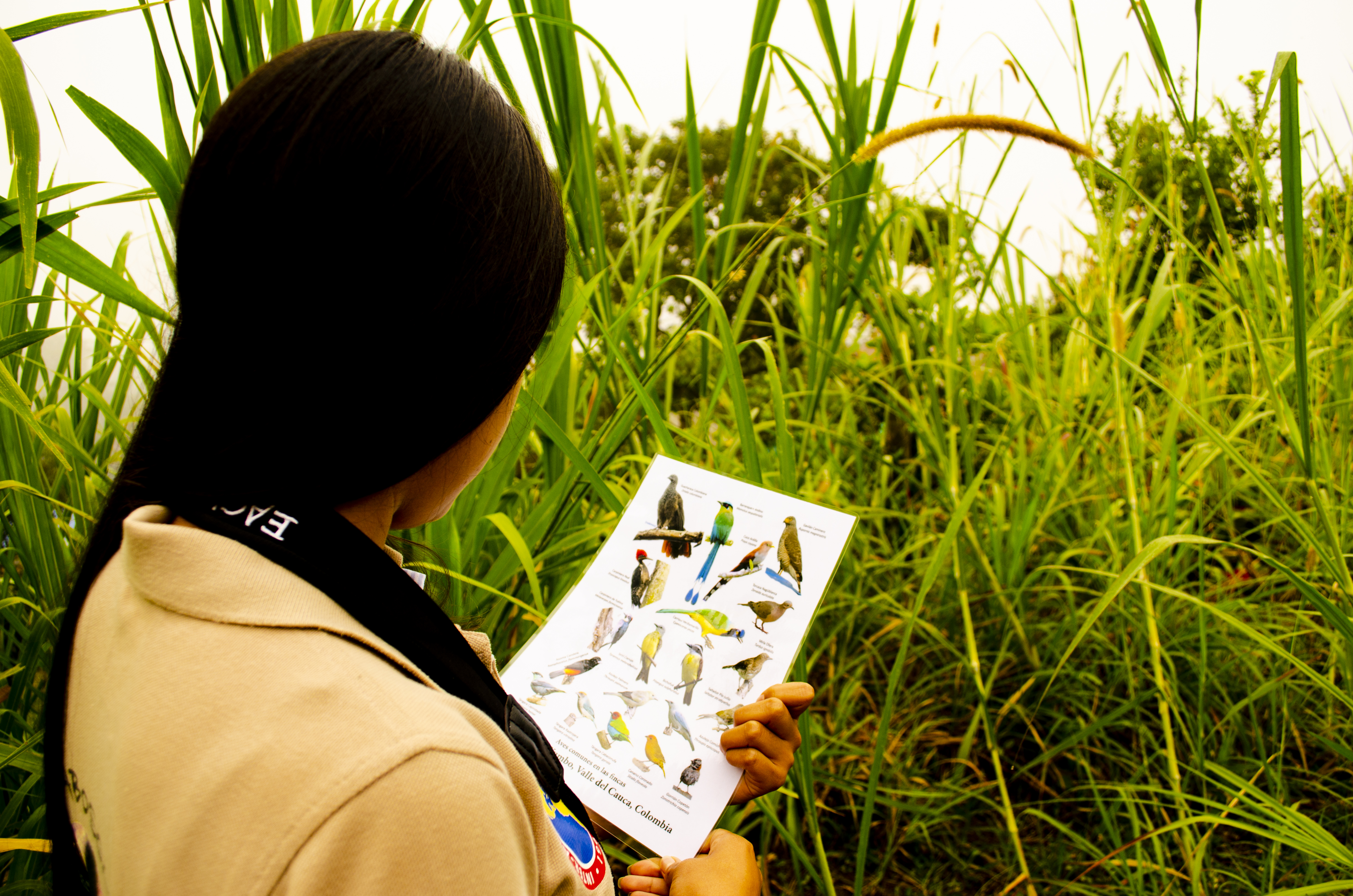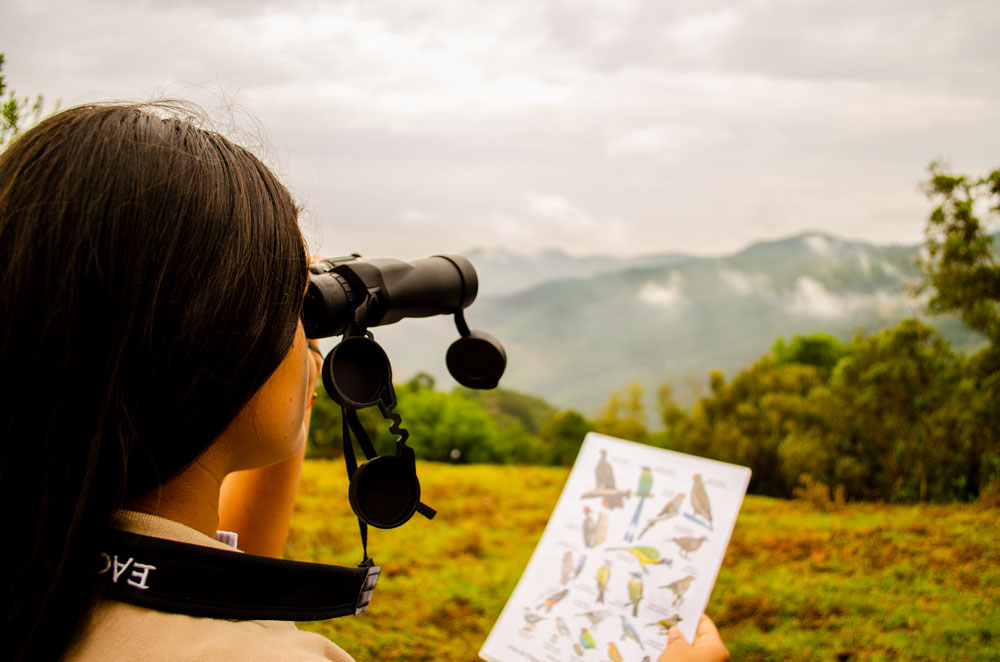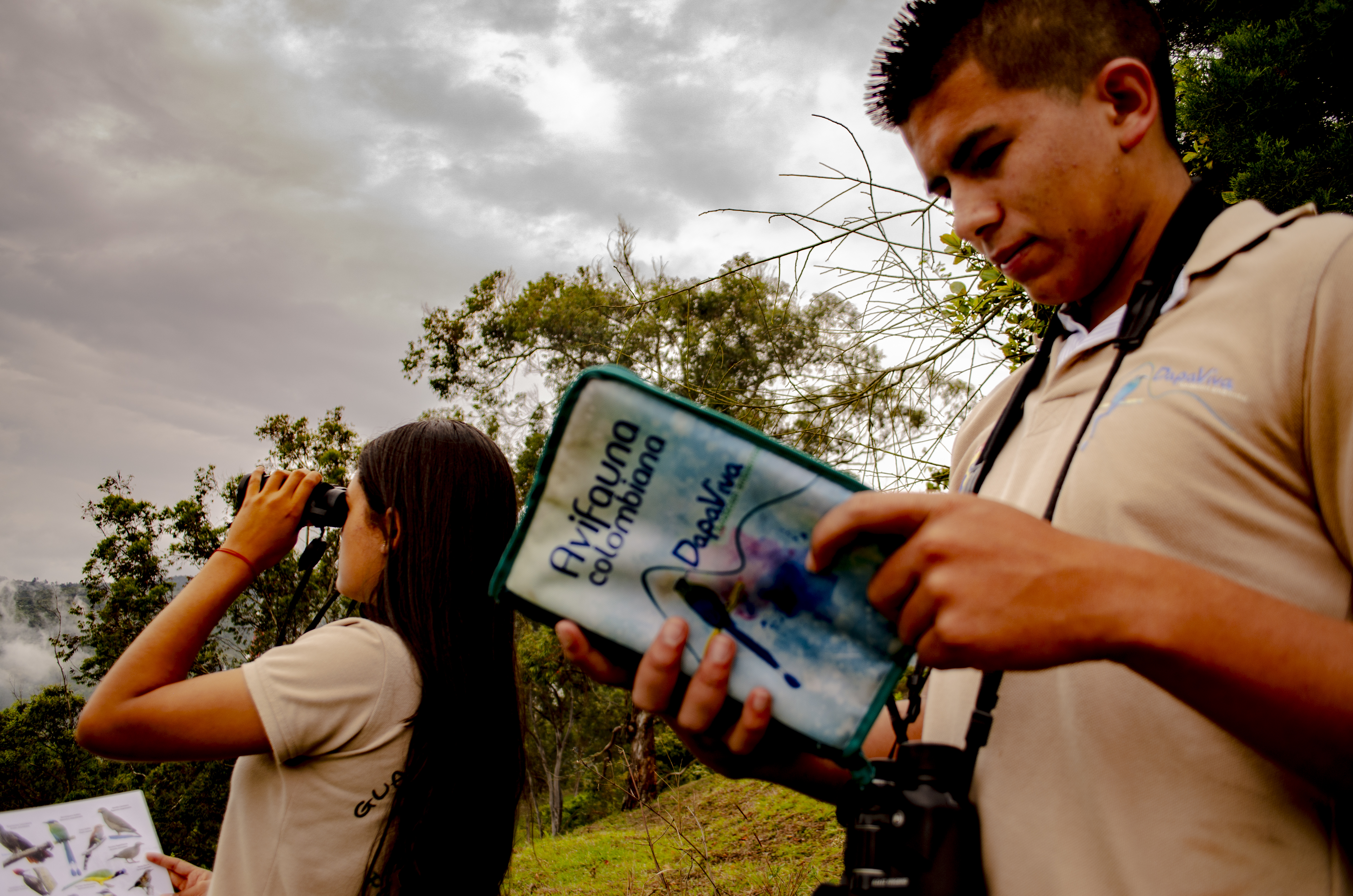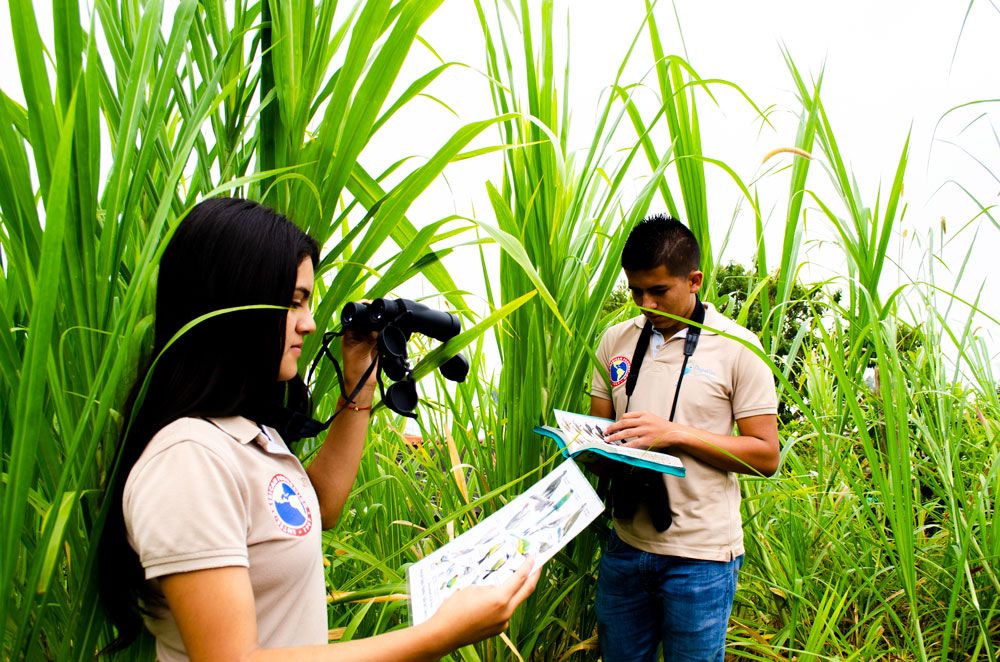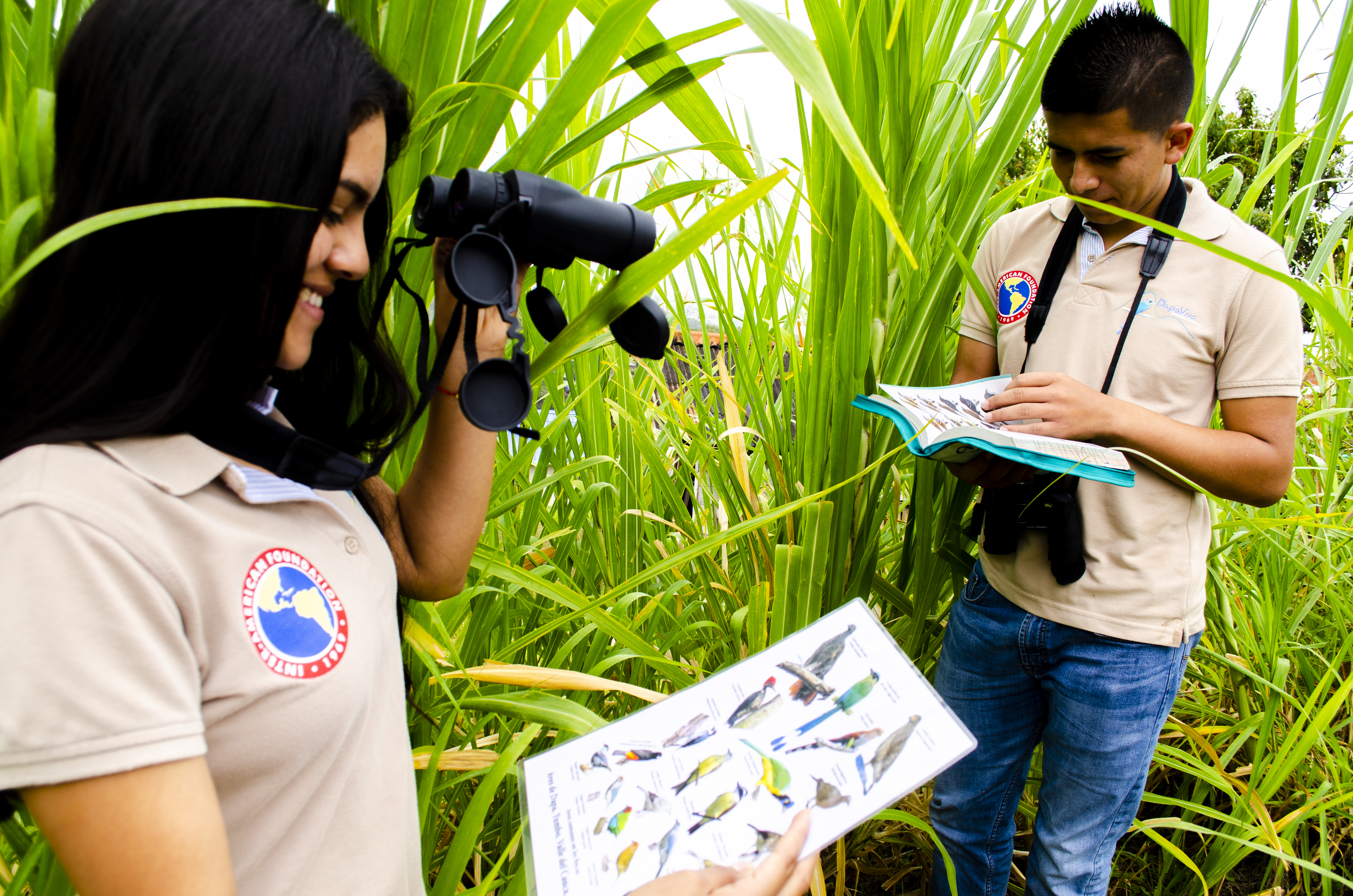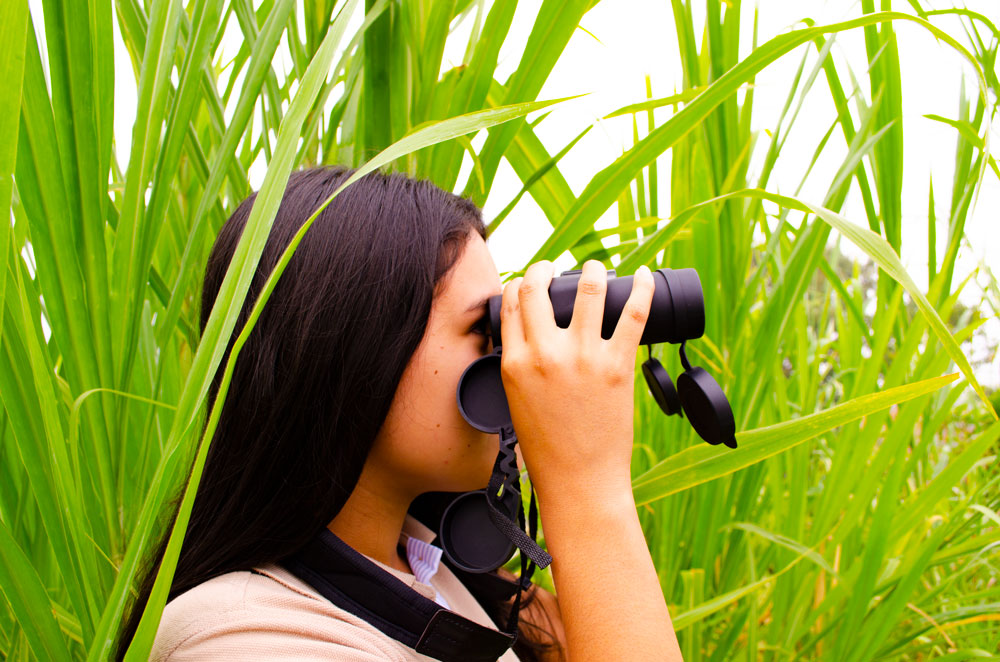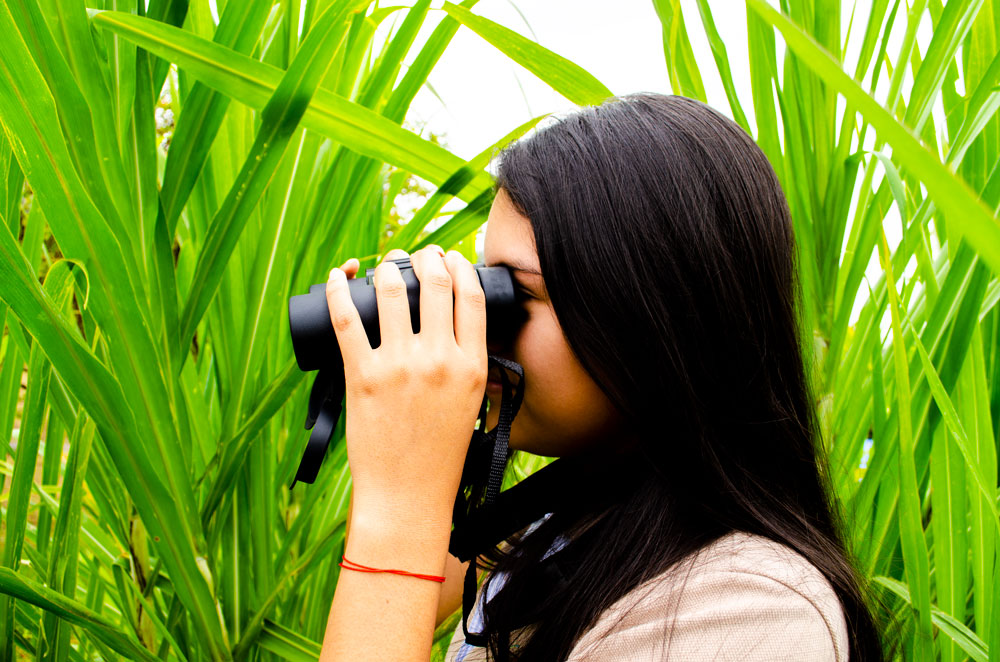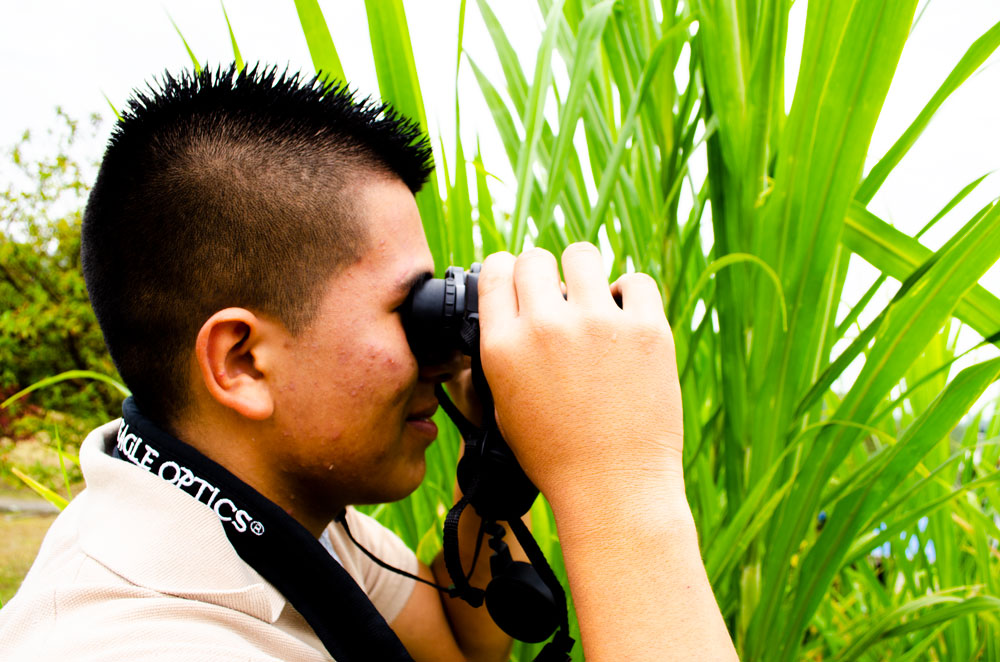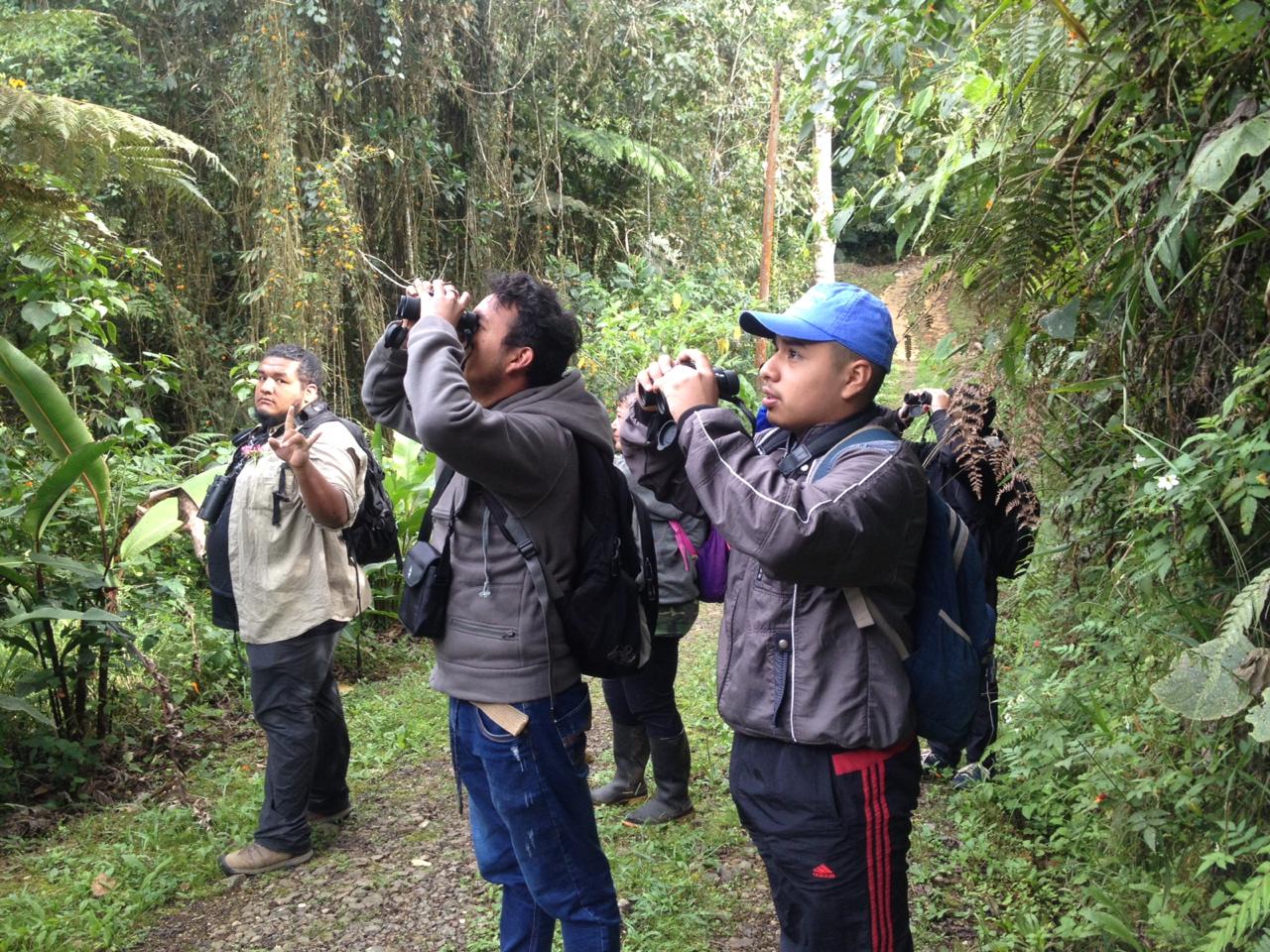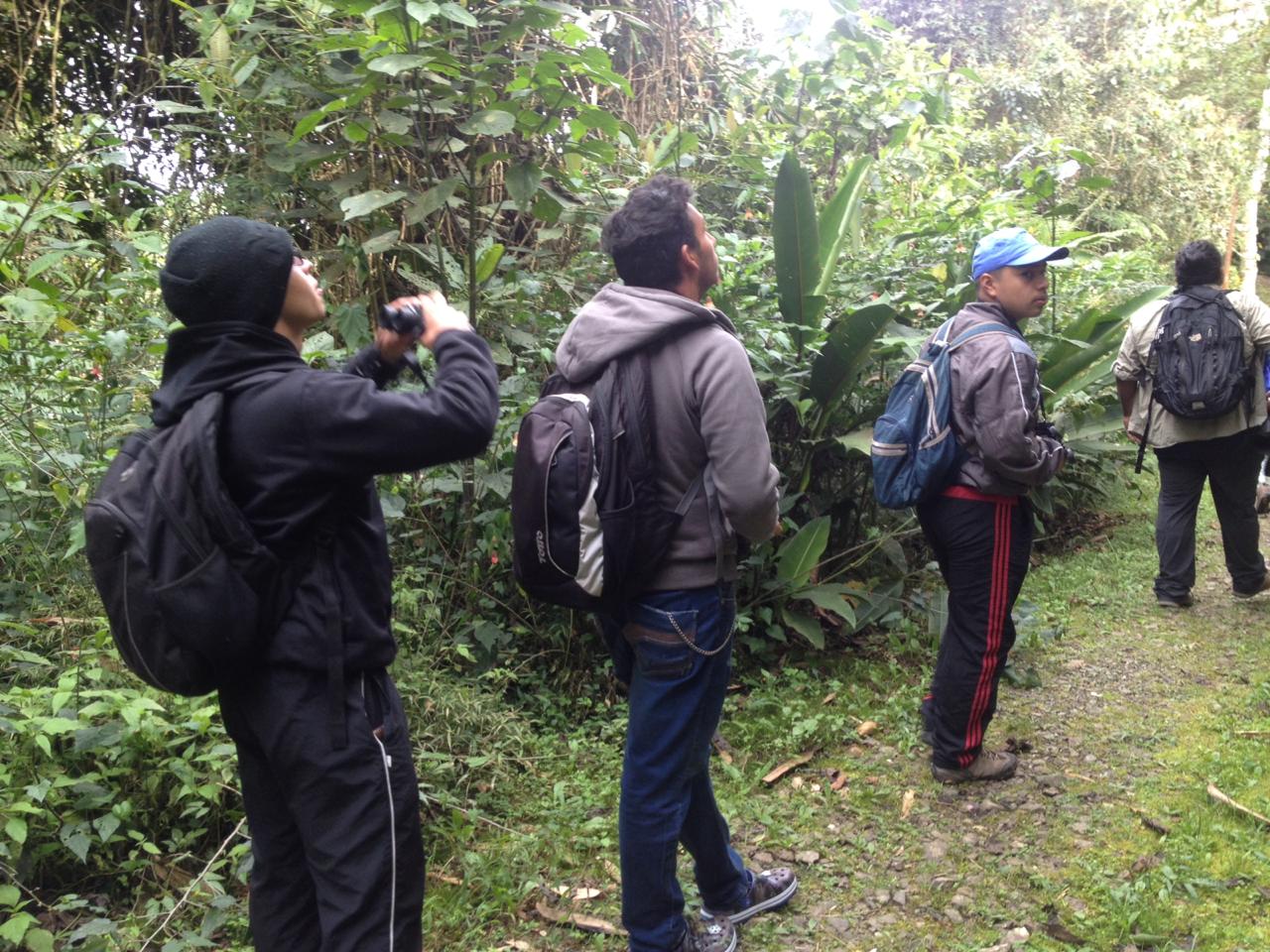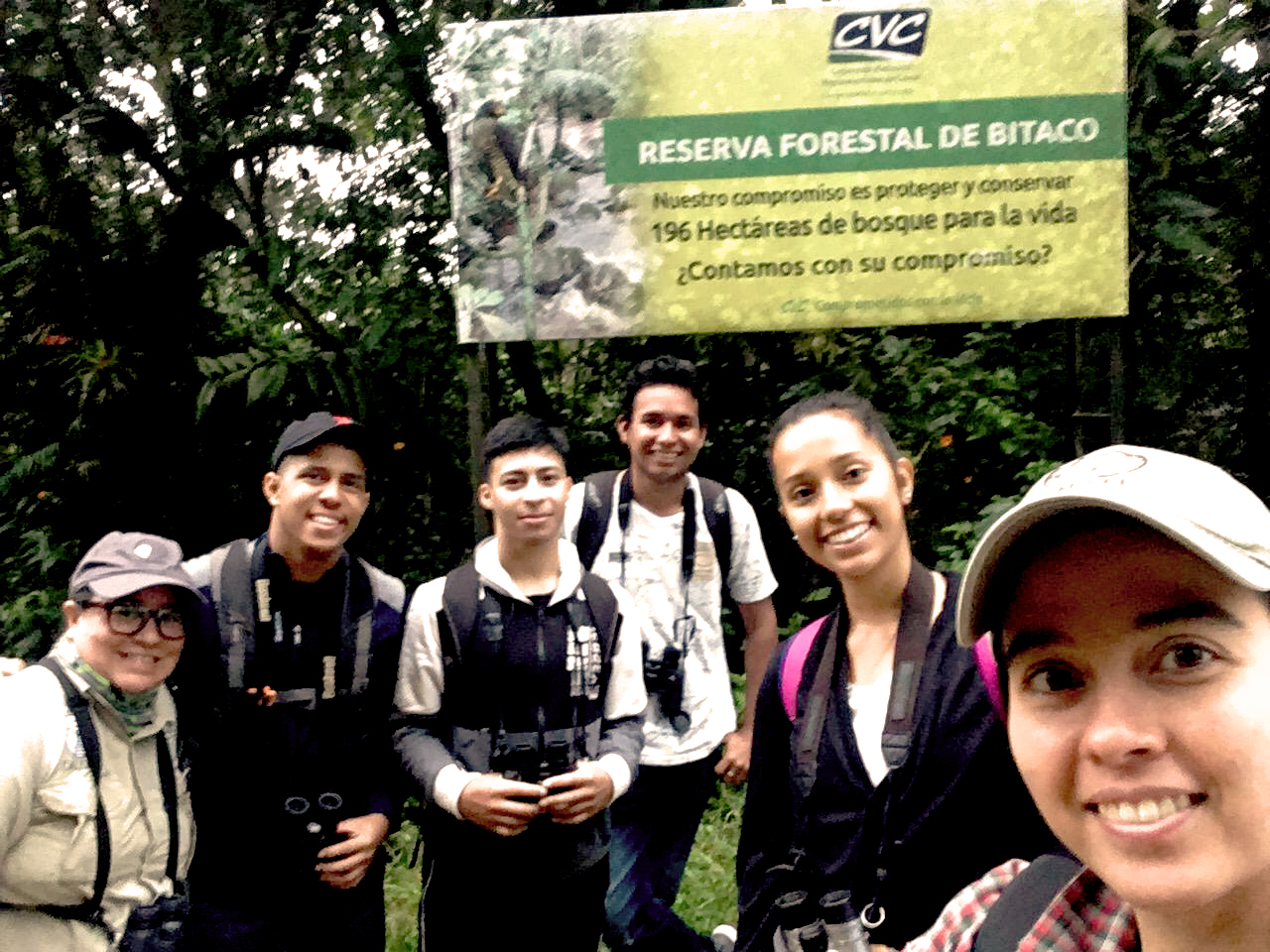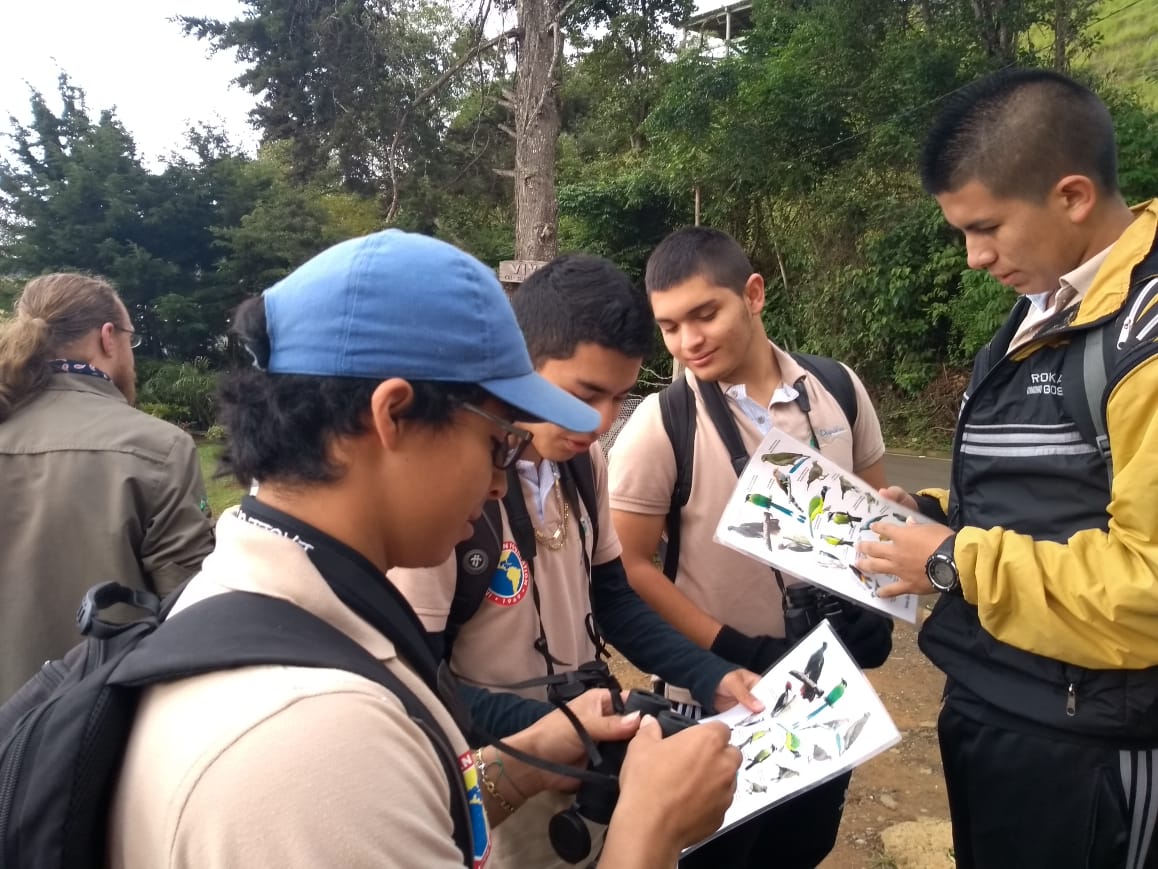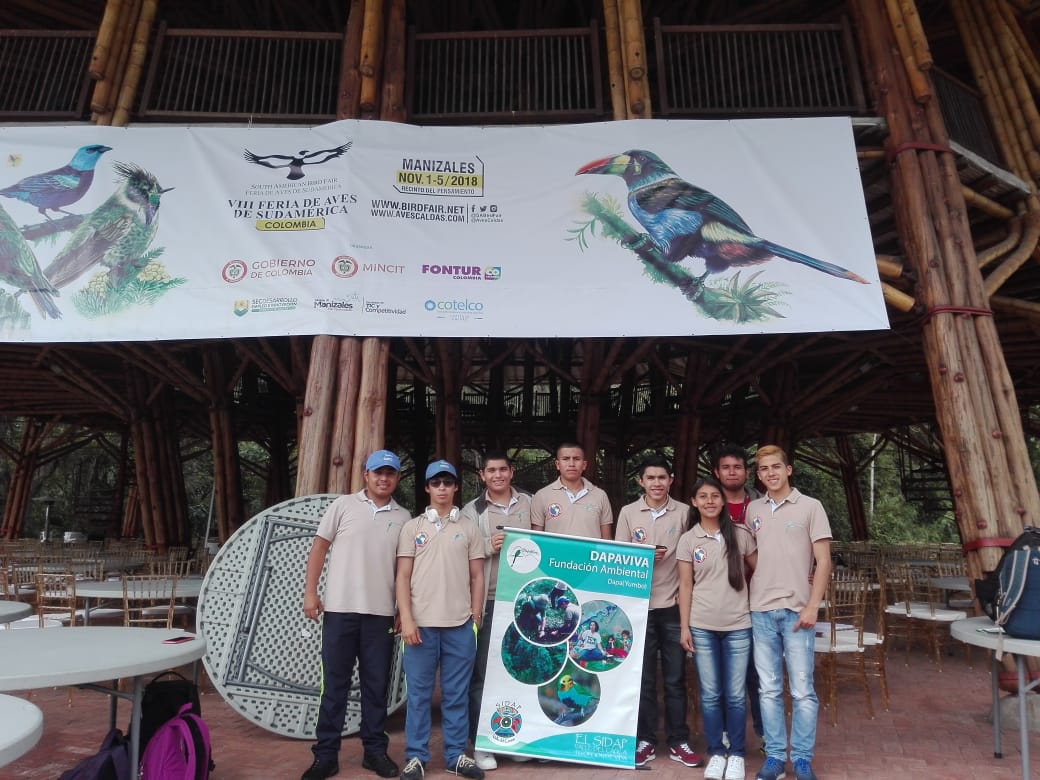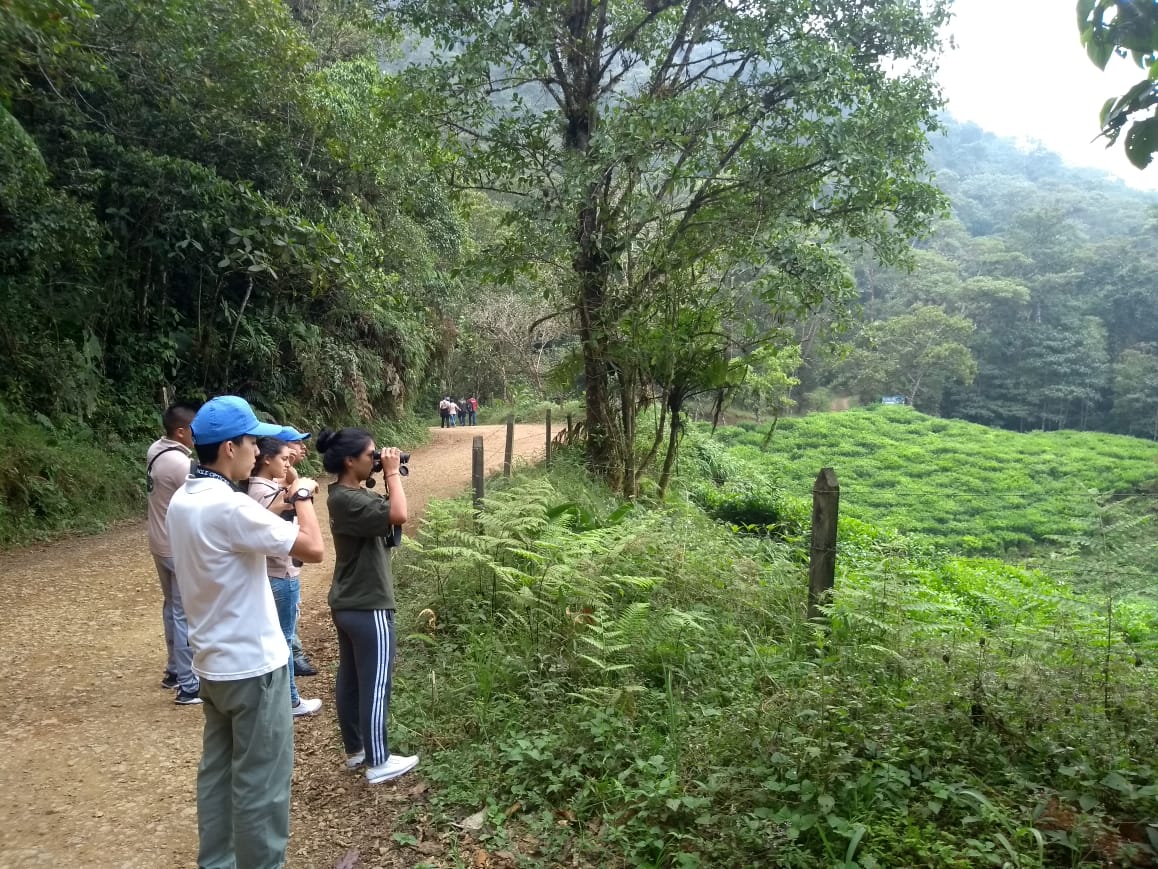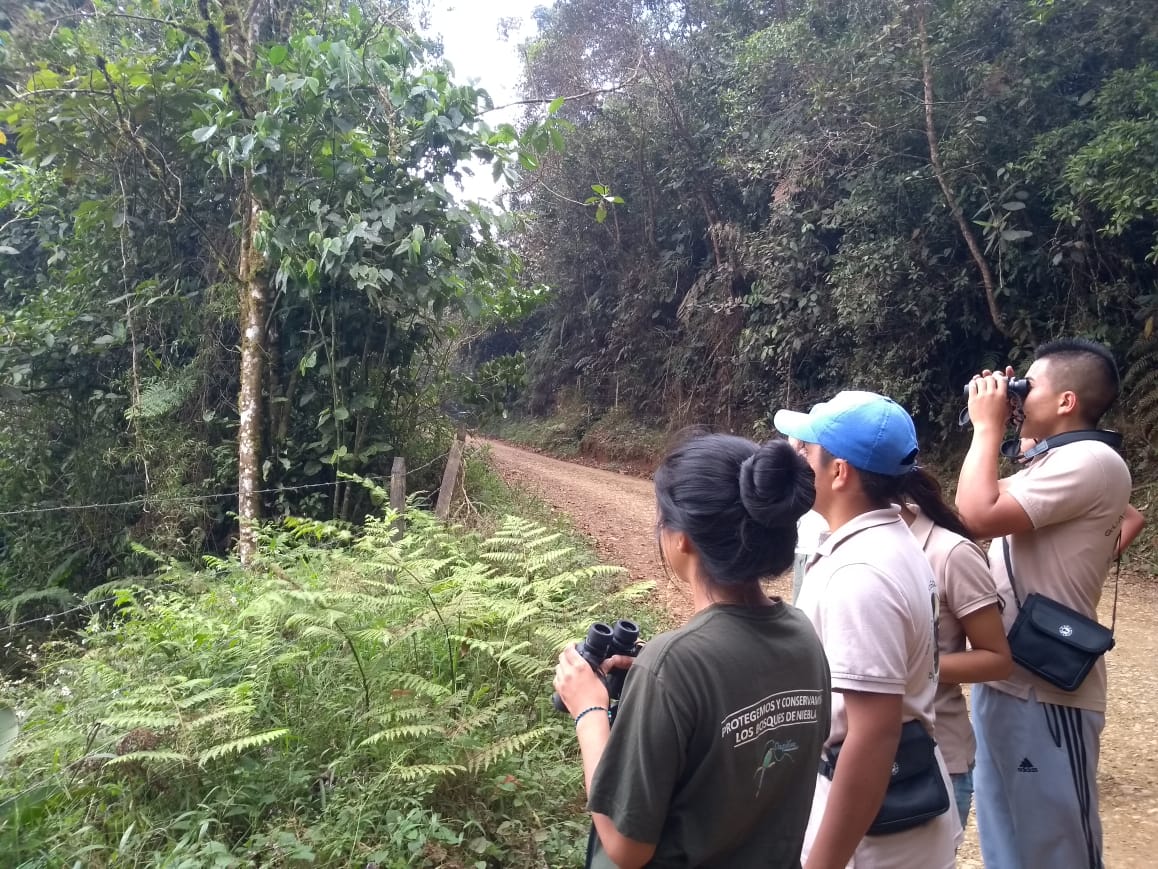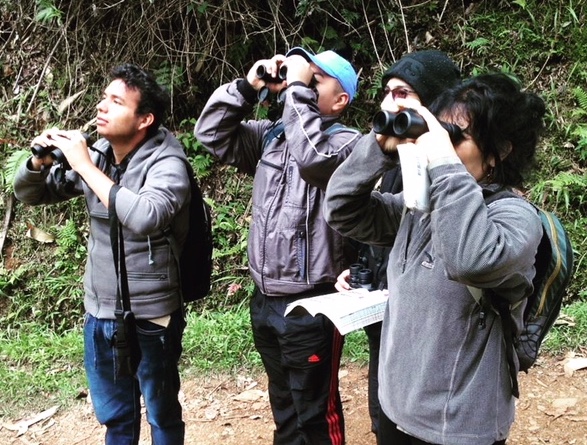 Photo ©
DapaViva
Photo ©
DapaViva
The DapaViva Foundation (La Fundación DapaViva), the winner of a mini-grant for binoculars from Optics for Tropics and the Cornell Lab of Ornithology, created a wonderful workshop for their participants. Through this event, the participants were able to observe birds and animals in great detail in the region of Valle del Cauca, Colombia. The binoculars were used in outdoor activities and students of all ages interested in the biodiversity of their region were invited to get involved!
The binoculars were very well received by the group Forest Protectors of the Green Planet (Guardabosques del Planeta Verde)— a group of young individuals from the DapaViva Foundation who develops fantastic environmental education activities for the communities of the region. The participants were overjoyed to receive the opportunity to use the binoculars to observe the birds and the extraordinary biodiversity of the area in more detail! With the support of the DapaViva Foundation, the Forest Protectors of the Green Planet also created a small- company of Sustainable Nature Tourism called DapaViva Conservtours.
DapaViva Conservtours’s goal is to incorporate environmental education into tourism and encourage environmental conservation through the same. They give guided educational tours about biodiversity and birds in the region to groups of Colombians, visitors, schools, businesses, families and more! In addition, they also create educational workshops for the communities of the villages of the region and organize reforestation activities in the communities of Dapa, La Olga, La Buitrera and Yumbillo of the municipality of Yumbo in the Valle del Cauca.
The binoculars have been instrumental in allowing the young people of the DapaViva Foundation to carry out their activities! They use them when they start their bird observation tours and share them with the participants in the tours and activities. People of all ages have participated in the outings guided by the DapaViva Conservtours including adults and schoolchildren of the Rosa Zárate de Peña Educational Institution, all of whom greatly enjoyed identifying the birds of their community!
The binoculars were also very helpful for students who are training to be local bird monitors. Thanks to the binoculars, they learned to better recognize the key differences between the various birds of their region. In November 2018, students received their certifications from the Governor’s Office of Valle del Cauca and from the Calidris Association with Audubon (Asociación Calidris con Audubon). This was fantastic news!
The children became so interested in the efforts to conserve birds that they gave a speech at the Environmental Education Symposium at the VIII Birds of South America Fair held in Manizales (Caldas) in Colombia. There, they presented “Preserving the birds from Environmental Education.” During the presentation, they talked about the binocular mini-grant and the importance of binoculars in observing birds and learning more about the natural environment.
The DapaViva Foundation also organized workshops for the community. For example, they held workshops for schoolchildren in the Alto Dapa, Yumbillo, Salazar, Buitrera and La Olga districts, where they worked on identifying the differences in the local birds. They also worked on making and installing bird feeders and even created gardens for birds to make their community more beautiful!
The binoculars were a great source of motivation for the youth involved in these programs. The fact that they were selected to receive the mini-grant increased the group’s self-esteem; It was also great learning that it was possible to be rewarded for their effort and dedication. And, for the children, it was great for them to see the birds up close, and they especially loved using the binoculars for this!
DapaViva also worked with the Green Planet Ranger Program, with the support of the Interamerican Foundation (IAF), in 2016 to train forest rangers through activities such as training workshops, construction of ecological points, repair of forest signage, and supporting the children’s tasks. To read more click here!
